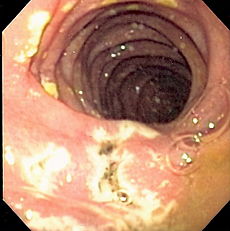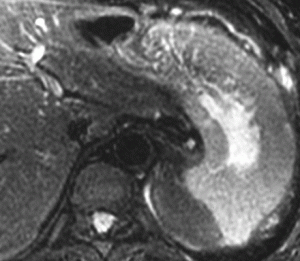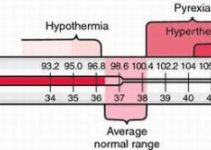Zollinger-ellison Syndrome is a rare disease that affects the gastrointestinal system and accounts for 1 out of 100 or 1000 sufferers of duodenal cancer. Get to know all about this disorder in detail, including its causes, symptoms, diagnosis and treatment.
Zollinger-ellison Syndrome Definition
Page Contents
- 1 Zollinger-ellison Syndrome Definition
- 2 Zollinger-ellison Syndrome Synonyms
- 3 Zollinger-ellison Syndrome Incidence
- 4 Zollinger-ellison Syndrome Causes
- 5 What happens in Zollinger-ellison Syndrome?
- 6 Zollinger-ellison Syndrome Symptoms
- 7 Zollinger-ellison Syndrome Diagnosis
- 8 Zollinger-ellison Syndrome Differential Diagnosis
- 9 Zollinger-ellison Syndrome Treatment
- 10 Zollinger-ellison Syndrome and Medications
- 11 Is Zollinger-ellison Syndrome Serious?
- 12 Zollinger-ellison Syndrome Complications
- 13 Does Zollinger-ellison Syndrome Go Away?
- 14 Zollinger-ellison Syndrome Risk Factors
- 15 Zollinger-ellison Syndrome Prognosis
- 16 Zollinger-ellison Syndrome Prevention
It is a disease characterized by elevated production of a hormone, known as Gastrin, in the body. The condition is abbreviated as ZES.
Zollinger-ellison Syndrome Synonyms
It is also known by other names like:
Picture 1 – Zollinger-ellison Syndrome
- Z-E Syndrome
- Gastrinoma
- Strom-Zollinger-ellison Syndrome
Zollinger-ellison Syndrome Incidence
This is an extremely rare syndrome and arises in only 1 to 3 individuals out of every one million people every year. The disease can affect anyone. However, it is particularly common in males aged between 30 and 50 years. People with this condition have a 20-61% risk of developing ZES. Those having a parent with the disorder are at a 50% risk of inheriting the gene that is causative of MEN 1.
Zollinger-ellison Syndrome Causes
The disorder results from the development of tumors (Gastrinoma) in the upper small intestine of the pancreas. These abnormal growths produce Gastrin in excess amounts, leading to the production of stomach acid in high quantities. There can be a single Gastrinoma tumor or more than one small growths of this type.
Approximately 50-75% of single growths of this type are malignant (cancerous) in nature. These often spread to the liver and the lymph nodes located nearby. Many people having Gastrinomas suffer from multiple tumors due to a disorder known as MEN I (Multiple Endocrine Neoplasia Type 1). Patients with MEN I often develop tumors of the pancreas, parathyroid gland (neck) and pituitary gland (brain).
What happens in Zollinger-ellison Syndrome?
In this condition, the tumors (Gastrinoma) secrete a hormone known as Gastrin. This hormone affects the stomach lining and stimulates it to produce excessive amounts of acid. It also elevates the amount of cells that line the stomach and secrete acids. This heightened acid secretion leads to swelling and the development of ulcers in the lower food pipe and the stomach. It also gives rise to other symptoms, such as diarrhea.
Zollinger-ellison Syndrome Symptoms
ZES gives rise to a number of signs and symptoms that resemble those arising due to Peptic ulcer. These may involve health problems like:
- Heartburn
- Fatigue
- Nausea
- Vomiting
- Reduced appetite
- Unintentional weight loss
- Anemia
- Abdominal pain
- Bleeding in the digestive tract
- Aching, gnawing, burning or discomforting sensations in the upper abdomen
In some case, it may also lead to Duodenitis.
Zollinger-ellison Syndrome Diagnosis
Patients usually visit a family physician or a GP (general practitioner) who is likely to refer them to a Gastroenterologist. In some cases, affected individuals are also referred to an oncologist (a physician who is a specialist in curing cancerous conditions). It is important to prepare from beforehand as such medical apoinments can only be of short duration. Patients should make a list of their symptoms, all the medications (including vitamin supplements) that they have been using and any recent changes (such as stressful occasions) in their life. Doing this would help them make the most of the limited time of their appointment.
The diagnosis of ZES usually begins with physicians asking you about your medical history. You may be asked whether you have a blood relative with the condition; in which case you are at increased risk of having the disorder.
Blood tests
Physicians would also analyze a sample of your blood in the laboratory to check for increased level of Gastrin hormone. Patients need to be on an empty stomach before undergoing this test. If you have been taking acid-reducing drugs for some time, you must stop using them for sometime top get proper results for your Gastrin measurement test. The test may be repeated for a few times as the levels of this hormone tend to fluctuate.
Upper Gastrointestinal Endoscopy
The test involves sedating patients and inserting an endoscope into the stomach and duodenum of patients to check whether Gastrin-producing tumors are present. You are not supposed to have anything after midnight the day before the test.
Secretin Stimulation Test
Various other conditions, other than ZES, may cause increase in the level of Gastrin. Due to this reason, it is important for doctors to test the acidity in the stomach of sufferers and check which condition is responsible for Gastrin increase in a sufferer. In cases where the stomach is found to manufacture acids, a medical exam known as Secretin Stimulation Test may be performed. The exam involves measurement of the Gastrin levels by injecting a hormone known as secretin and re-measuring the Gastrin levels. The level of the hormone will elevate more in cases where patients have ZES.
Endoscopic Ultrasound exams
In this test, an endoscope fitted with an ultrasound probe is used to examine the stomach and the duodenum. It lets physicians have a closer imaging of the digestive tract thus making it easier for them to identify the tumors. The removal of tissue sample is also possible through the use of an endoscope. To undergo this exam, patients need to go without food or drinks after midnight the day before having the test. They also require to be sedated before the test is conducted.
Imaging tests
Physicians may use imaging techniques like Ultrasound scans, Magnetic Resonance Imaging (MRI), Computerized Tomography (CT) Scans or Nuclear scans to locate tumors in patients.
Zollinger-ellison Syndrome Differential Diagnosis
The differential diagnosis of Zollinger-ellison Syndrome involves distinguishing it from other conditions that give rise to more or less similar symptoms. These include disorders like:
- Gastric Outlet Obstruction
- Atrophic gastritis
- Gastric cancer
- Pernicious anemia
- Chronic renal failure
- Gastric outlet obstruction
- Antral G-cell hyperfunction
- Ulcers and kidney stones
- Recurrent or refractory ulcer disease
Zollinger-ellison Syndrome Treatment
The treatment of ZES requires physicians to treat the ulcers as well as the tumors. However, successful removal of tumors would no longer make it necessary to remove the ulcers.
The treatment of tumors is usually performed with the aid of a surgery. This is usually carried out by a skilled surgeon who has the necessary skills and expertise to detect and remove the small tumors causative of the condition. However, surgery is useful only in case of a single tumor. Operation is not considered to be a curative option in case there are more than one tumors or tumors that have spread to the liver.
In some cases, other treatment options are also used for controlling the growth of tumors. These include:
- Liver transplant
- Injecting drugs into Gastrinomas (for alleviating symptoms of cancer)
- Chemotherapy, for reducing the pace of tumor growth
- Embolization (Destroying tumor by blocking the supply of blood to it)
- Radiofrequency ablation (Use of heat to destroy cancerous cells)
- Debulking (Removal of as much liver tumor as possible)
These days more radical operative techniques, such as completely removing the stomach or severing the nerves that encourage stomach acid production, are not used. Medicines are usually successful in lowering the production of acids and the development of ulcers.
Zollinger-ellison Syndrome and Medications
The condition is treated with medicines to provide relief from the symptoms of ulcer. In some cases, a class of drugs is administered to effectively reduce the secretion of gastric acid in the stomach. These are known as “Proton Pump Inhibitors” and involve medications like Lansoprazole (Prevacid), Esomeprazole (Nexium), Omeprazole (Prilosec) and Pantoprazole (Protonix). Tumors which are not possible to remove through surgery can sometimes be successfully with chemotherapy drugs like Doxorubicin (Doxil), 5-fluorouracil (Adrucil) and Streptozotocin (Zanosar).
Is Zollinger-ellison Syndrome Serious?
ZES is obviously a serious disorder and has potentially life-threatening consequences for its sufferers. This is because Gastrinoma growths, or the tumors that produce the Gastrin hormone, may spread from one area of the body to another. It may give rise to severe complications. The ulcers resulting from this disease are usually more painful and show lower response to treatment than normal peptic ulcers.
Zollinger-ellison Syndrome Complications
Some of the main complications that can develop from ZES include:
- Acute diarrhea
- Weight loss
- Intestinal bleeding
- Inability to identify tumor(s) during operation
- Spreading of tumors to other organs, most commonly the lymph nodes and the liver
Does Zollinger-ellison Syndrome Go Away?
Once the condition occurs, it does not go away without proper treatment. This is because the pancreatic tumor, that manufactures Gastrin in excess, is generally malignant (cancerous) and can spread to other regions of the body.
Zollinger-ellison Syndrome Risk Factors
The risk factors for this disorder include:
Picture 2 – Zollinger-ellison Syndrome Image
- MEN 1 Syndrome
- Having a family history of ulcer disorder
Zollinger-ellison Syndrome Prognosis
The prognosis is comparatively poor even when diagnosis and operation is conducted in the early stages to remove the Gastrinoma. However, the growth of these tumors tends to be slow. Patients are likely to survive for many years before the Gastrinoma tumors are diagnosed. In some cases, acid-suppressing drugs are found to be extremely effective in reducing the symptoms arising due to production of excessive amounts of acids. The outcome actually depends on the extent and nature of the Gastrinoma tumors in patients. Around 25% cases are regarded as malignant and the 10 year survival rate is estimated to be approximately 30%.
Zollinger-ellison Syndrome Prevention
It is not possible to prevent the development of this disorder in a specific way. However, family members of a patient require genetic counseling and screening if he or she is diagnosed with MEN 1. If you have been treated for ZES, regular visits to the doctor are necessary for you to ensure that there is no recurrence of Gastrinoma tumors.
You should get in touch with a physician in case of discomforting abdominal sensations. Visiting a healthcare provider is particularly important if you are also suffering from other problems like vomiting, nausea and diarrhea.
References:
http://www.ncbi.nlm.nih.gov/pubmedhealth/PMH0001366/
http://www.mayoclinic.com/health/zollinger-ellison-syndrome/DS00461
http://digestive.niddk.nih.gov/ddiseases/pubs/zollinger/
http://www.patient.co.uk/doctor/Zollinger-Ellison-Syndrome.htm



